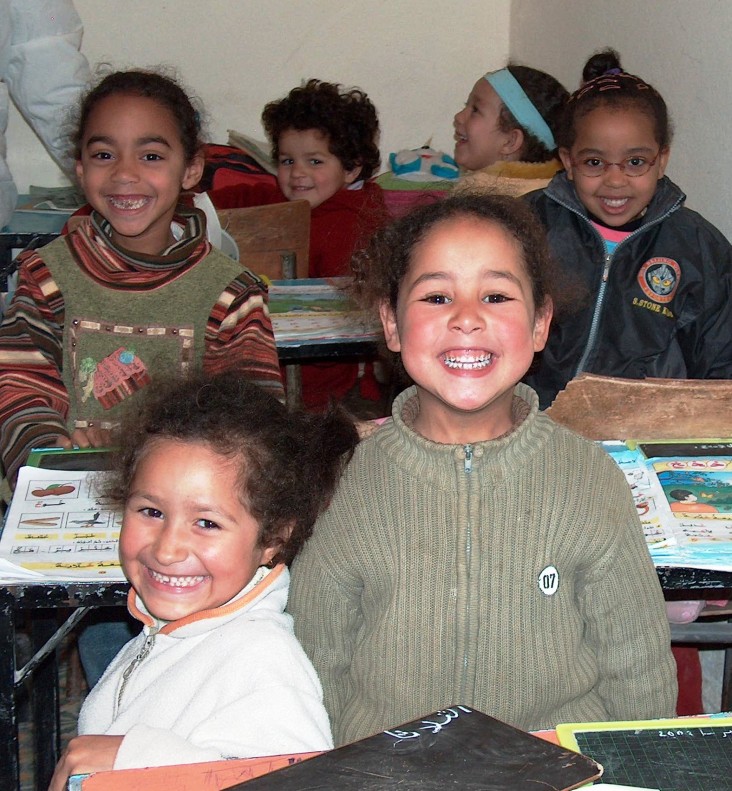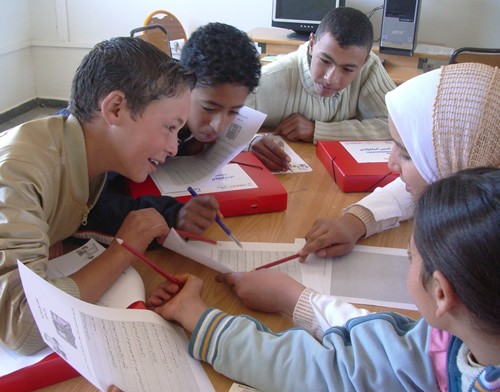
Although more than 95 percent of school-aged children in Morocco are now enrolled in primary school, the education system in Morocco faces significant challenges. Drop-out rates are still high and only 53 percent of students enrolled in middle school continue on to high school and less than 15 percent of first grade students are likely to graduate from high school. Low levels of daily attendance, teacher absenteeism, and a multi-lingual environment at school contribute to the low literacy rates in Morocco. Those unable to complete a high school education have far fewer employment opportunities.
Given these statistics, Morocco has undertaken an ambitious reform program to increase access to education and improve the performance of the education system. USAID partners with the Moroccan government and other implementing agencies to improve education quality, as measured by learner performance in early-grade reading, by strengthening the capacity of teachers, school administrators and officials, and by printing and distributing teaching and learning materials.

Impacts in this sector include:
- 12,000 students were reached with the new reading method
- Over 340 teachers have been trained on the reading instruction approach and provided with the instructional material kits.
- An educational software for deaf children was completed and distributed to nine associations for the deaf across Morocco.
- First Ever Early Grade Reading and Sign Language Assessment developed, tested, and implemented in 10 schools for deaf students.
- A Steering Committee formed and coached to lead the program and lobby for the rights of deaf children to equitable access to education
- Starting in the 2017-2018 school year, the Ministry will embark on a nationwide implementation of the phonics-based approach for reading instruction for grades 1 and 2.








Comment
Make a general inquiry or suggest an improvement.